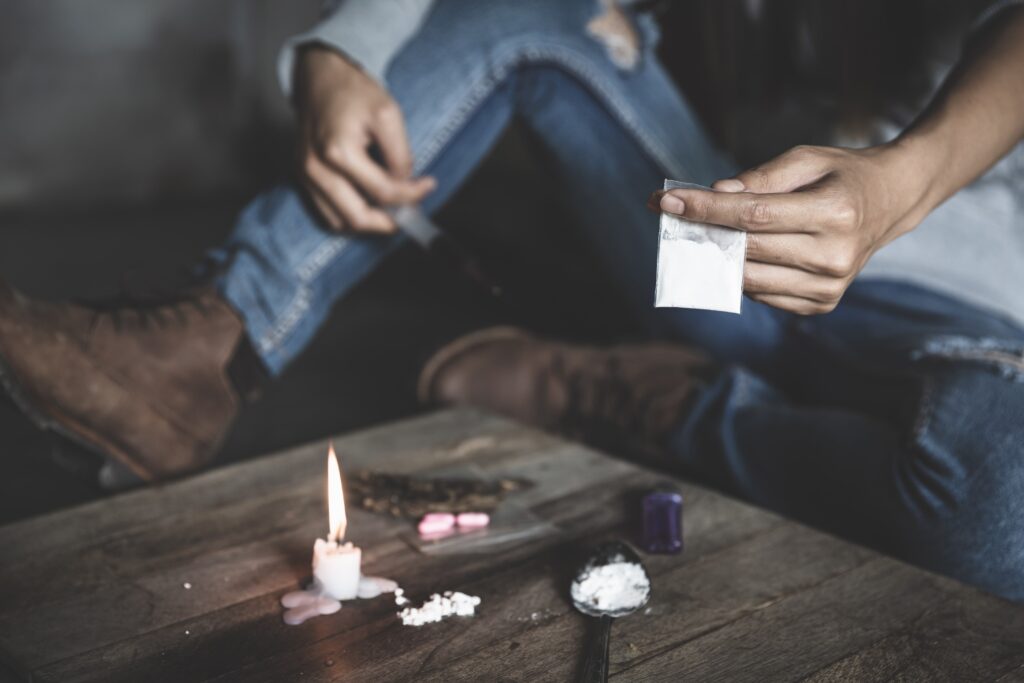How to Treat a Person Who is Addicted to Drugs
Drug addiction is a multifaceted and ongoing issue that affects not just the person grappling with it, but also their loved ones. It can severely impact a person’s physical, mental, and emotional health. Despite the challenges, recovery is achievable with appropriate support, effective treatment, and compassionate care.
At Khwaish Foundation, a leading de-addiction center in Gujarat, we recognize the intricate nature of addiction and have assisted many individuals in reclaiming their lives. This blog outlines the best practices for helping someone struggling with drug addiction and highlights the role of a de-addiction center in this process.

1. Recognize the Signs of Drug Addiction
Before you can treat drug addiction, it’s essential to recognize its signs. Addiction often manifests through physical, emotional, and behavioral changes. Some common signs include:
- Physical Signs: Poor hygiene, weight changes, slurred speech, bloodshot eyes, and unusual body odors.
- Behavioral Signs: Increased secrecy, changes in social groups, neglecting responsibilities, and engaging in risky behaviors.
- Emotional Signs: Anxiety, depression, irritability, or mood swings.
By recognizing these signs early, you can take the first step toward helping your loved one seek treatment.
2. Approach with Compassion and Empathy
When dealing with someone who is addicted to drugs, it’s crucial to approach them with compassion and empathy rather than judgment. Addiction is a disease, not a moral failure. Treating the person with kindness, respect, and understanding can help reduce feelings of shame and guilt, making it easier for them to seek help.
Express concern without being confrontational. Instead of blaming, focus on how their addiction is affecting their health, relationships, and future. A non-judgmental and supportive approach can encourage the person to open up and acknowledge their need for help.
3. Encourage Professional Treatment
Drug addiction often requires professional treatment, as overcoming it on your own can be incredibly difficult. The first step is seeking help from a de-addiction center in Gujarat, such as Khwaish Foundation. Treatment at a de-addiction center is tailored to the individual’s specific needs and typically involves:
- Detoxification: Helping the body rid itself of harmful substances, often requiring medical supervision to ensure safety and manage withdrawal symptoms.
- Therapy and Counseling: Psychotherapy, including cognitive-behavioral therapy (CBT) and group therapy, helps individuals understand the root causes of their addiction and develop coping mechanisms.
- Relapse Prevention: One of the main goals of treatment is to prevent relapse. De-addiction centers teach clients how to manage triggers and stressors that may lead to drug use in the future.
4. Support Groups and Peer Support
In addition to professional treatment, support from others who have gone through similar struggles can be invaluable. Support groups like Narcotics Anonymous (NA) or local community-based support groups provide a safe and understanding environment where individuals can share their experiences and support one another in their recovery journey.
Peer support is essential because it creates a sense of community, reducing feelings of isolation and loneliness that often accompany addiction. It reinforces the idea that recovery is possible and provides individuals with tools to stay sober.
5. Create a Stable and Supportive Environment
A nurturing home environment is essential for successful recovery. Drug addiction can disrupt various aspects of a person’s life, so it’s vital to help rebuild a foundation of trust, love, and support. This may involve:
- Setting Boundaries: Establish clear and consistent rules regarding drug use.
- Encouraging Healthy Habits: Promoting exercise, healthy eating, and regular sleep patterns can improve mental and physical well-being.
- Being Patient: Recovery takes time, and there may be setbacks along the way. Offering consistent emotional support and celebrating small victories can help your loved one stay motivated and focused on recovery.
6. Family Involvement in Recovery
Addiction impacts the whole family. Involving family members in the recovery process can provide the individual with the emotional support they need. Many de-addiction centers offer family therapy, which helps loved ones understand addiction, improve communication, and resolve conflicts.
Family support can also be an essential element in preventing relapse. It’s important for family members to set healthy boundaries, encourage treatment, and provide unconditional support throughout the recovery process.
7. Aftercare and Continued Support
Ongoing care is vital for maintaining long-term recovery. Aftercare may include follow-up therapy, regular counseling sessions, or participation in support groups. It’s also important for individuals to continue developing healthy coping skills, managing stress, and avoiding situations that may trigger a relapse.
At Khwaish Foundation, we offer comprehensive aftercare programs designed to help individuals sustain their recovery and reintegrate into society with confidence.
8. Why Choose Khwaish Foundation: A Trusted De-Addiction Center in Gujarat
At Khwaish Foundation, we take a holistic approach to treating drug addiction. As a respected de-addiction center in Gujarat, we provide:
- Customized Treatment Plans: Tailored to meet each individual’s unique needs.
- Supportive Atmosphere: A healing space where individuals feel valued throughout their recovery journey.
- Qualified Professionals: Our dedicated team includes addiction counselors, therapists, and medical staff committed to providing high-quality care.
- Family Engagement: We prioritize family involvement and also offer therapy sessions for families to foster a supportive environment.
We recognize that overcoming drug addiction is a challenging journey. However, with the appropriate treatment and compassionate support, recovery is not only possible but achievable.
Conclusion
Helping someone who is struggling with drug addiction is a demanding yet rewarding endeavor. It requires patience, empathy, and professional guidance. By acknowledging the signs of addiction, approaching the individual with understanding, encouraging them to seek professional help, and offering ongoing support, you can significantly impact their recovery journey. If you or someone you know is facing addiction, don’t hesitate to reach out for assistance. At Khwaish Foundation, we are here to guide you or your loved one toward a healthier, drug-free life.
